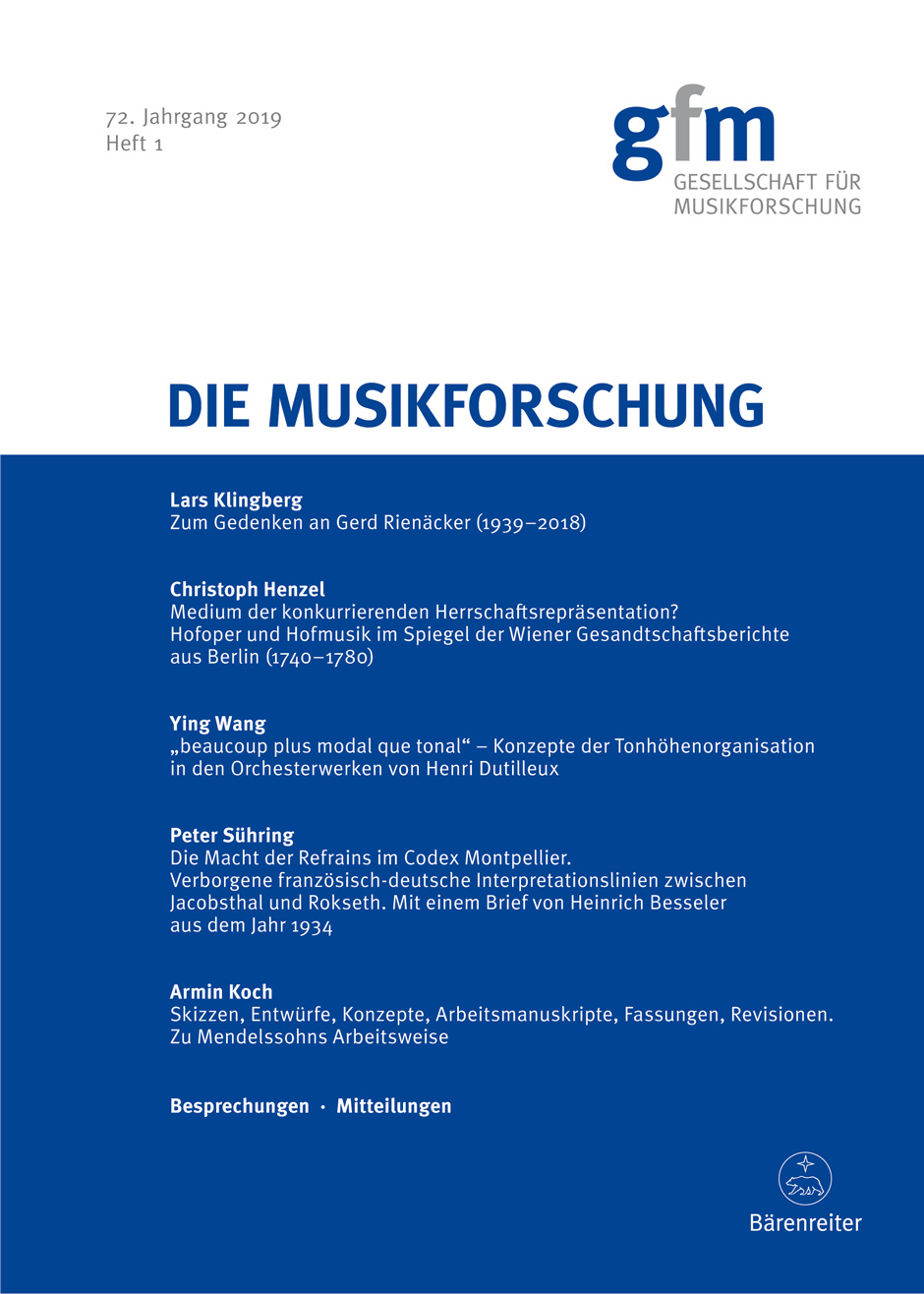Die Macht der Refrains im Codex Montpellier
Verborgene französisch-deutsche Interpretationslinien zwischen Jacobsthal und Rokseth. Mit einem Brief von Heinrich Besseler aus dem Jahr 1934
DOI:
https://doi.org/10.52412/mf.2019.H1.59Abstract
Little scholarly attention was paid to the origin and rhythmic structure of the Codex Montpellier motets between the early twentieth century and the flurry of (mainly anglophone) research in the last fifteen years. The connecting thread between generations of researchers had torn and the work of Gustav Jacobsthal (1845-1912) and Yvonne Rokseth (1890-1948) have not been integrated into the state of research: Rokseth's views were forgotten after the Second World War, while Jacobsthal's results were published posthumously only in 2010. This article demonstrates the congruence of their methods and conclusions, especially regarding the influence of the refrains on the early motets, based on quotations from Jacobsthal papers and Rokseth's observations published in 1939. Furthermore it reviews the German-French interrelations in the interpretation of the early motets since the mid-nineteenth century, particularly the similarities and differences between Rokseth and representatives of the "school" of Friedrich Ludwig respectively. In addition, the article offers the first publication if a letter by Heinrich Besseler to Rokseth from 1934, as well as excerpts from her inaugural lecture at Strasbourg 1937.






